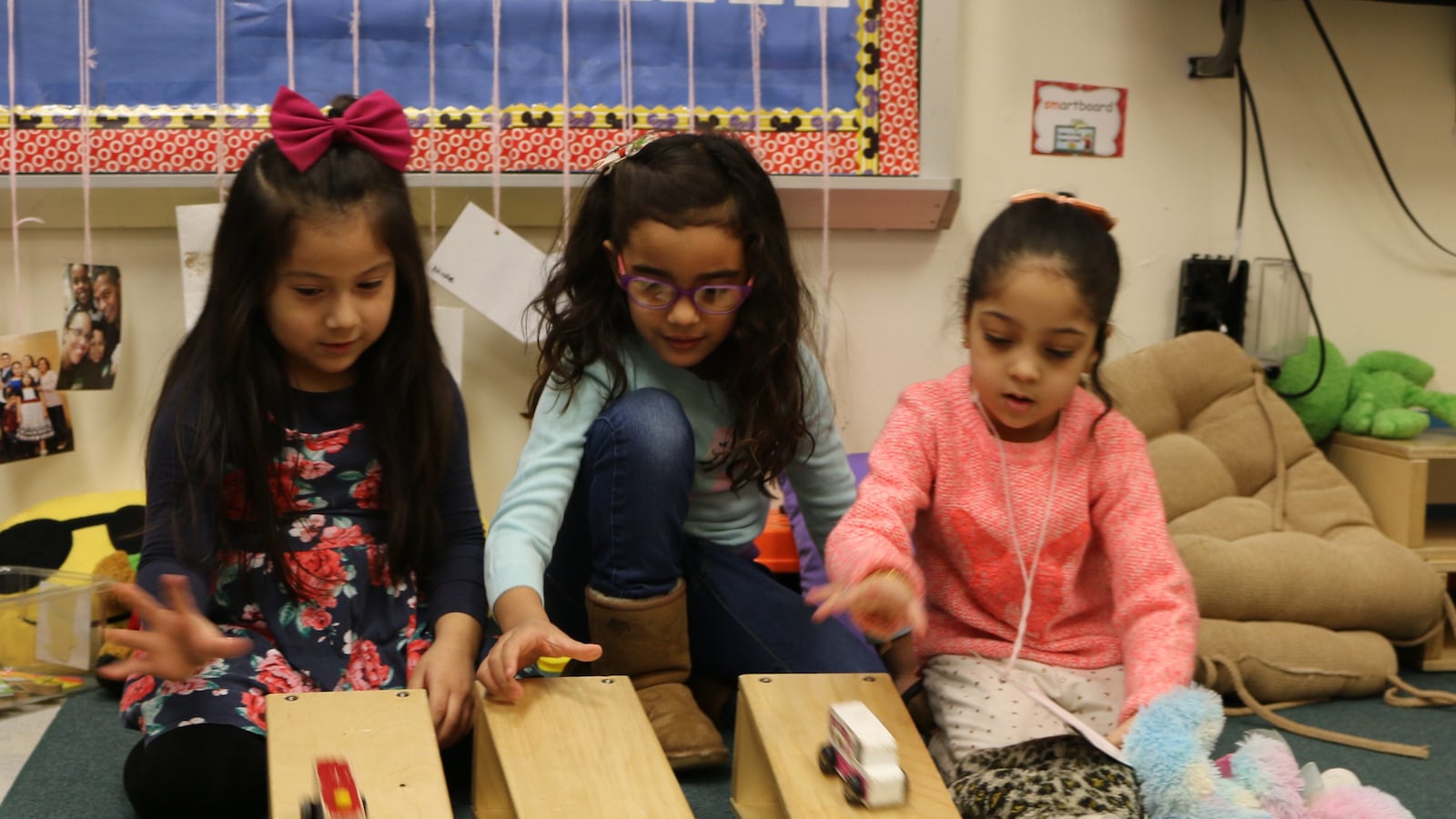New York City’s pre-K program earns high marks when it comes to quality and access, according to a new report that ranks early childhood education in major cities across the country.
That’s according to CityHealth, a policy advocacy group, and the National Institute for Early Education Research at Rutgers University, an authority on pre-K research.
The city is one of only five that were awarded CityHealth’s highest ranking — a gold medal — for meeting at least eight of 10 benchmarks for effectiveness and having high student enrollment. The report evaluated pre-K programs in the country’s 40 largest cities.
“I think New York City should be very proud of their program, and it really is a model for other cities,” said Ellen Frede, senior co-director of the institute and co-author of the report.
New York fell short on two measures: teacher training and education requirements for classroom assistants.
The knock on teacher training is surprising, given that the city often touts its dedication to professional development as one of the major factors contributing to program quality.
Also surprising: The report gives New York City credit for pay equity, which measures whether pre-K teachers are paid similarly to their K-12 colleagues. Only in city-run classrooms do early childhood educators earn the same as teachers who work with older students. But most pre-K students attend community-based programs, where teachers can earn as little as 60 percent of the salary paid to those who work for the city.
“It’s equity to some extent. There is work to be done there in New York City,” said Albert Wat, senior policy director for Alliance for Early Success, who peer-reviewed the report.
Still, New York City is far ahead of many other cities such as Indianapolis, where enrollment is low and programs show few of the marks of high quality. Education department spokeswoman Isabelle Boundy called the city’s early education efforts a “game-changer.” Since Mayor Bill de Blasio took office, the city has made free pre-K available to all 4-year-olds and has begun to expand the program to 3-year-olds.
“As New York City continues to increase access to free, full-day, high-quality early education, our programs are on par with gold-standard programs across the nation,” she wrote in an email.
The rankings are awarded by CityHealth, a non-profit funded by the de Beaumont Foundation and Kaiser Permanente, which notes the long-term health benefits afforded by pre-K. In New York City, a 2017 study showed improved health outcomes for low-income children after the launch of universal pre-K. Other studies, however, have shown mixed results.
You can read the full report here.
Correction: This story has been corrected to reflect that Ellen Frede was a co-author of the report.

